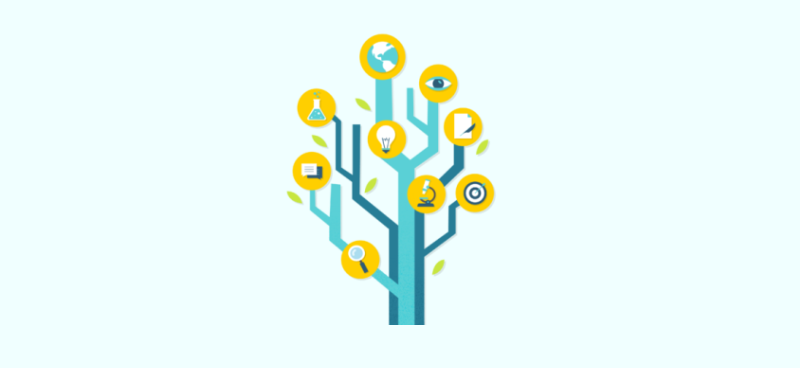What Is Digital Identity in Web3?
Published on
January 19, 2023
Time reading
5 minutes
Digital identity is like an online version of your driver’s license or passport. It’s a set of information that helps identify who you are, like your name, address, and other personal details. In the context of Web3, which is the next generation of the internet, it’s important because it allows people to securely and privately prove who they are online.
This is important for things like online transactions, voting, and accessing personal information. Web3 technology, like blockchain, makes it possible to create a digital identity that is secure, private, and decentralized, rather than controlled by a single company or government.
Table of contents
Exploring the Impact of Web3 and Digital Identity on Business Operations
Web3 and digital identity are changing the way businesses operate in a number of ways. One of the biggest changes is that with Web3 and blockchain technology, businesses can now create digital identities for their customers that are more secure and private. This is important for things like online transactions and online banking, where customers need to prove who they are in order to access their information or make a purchase.
Another way that Web3 and digital identity are changing business is by making it possible for businesses to operate in a more decentralized way. With blockchain technology, businesses can create decentralized networks where multiple parties can securely and privately share information and make transactions. This can lead to new business models and opportunities for companies.
Finally, Web3 and digital identity are also changing the way businesses think about data privacy. With the rise of digital identity, businesses will have to be more transparent about how they collect and use customer data, and customers will have more control over their personal information. This shift is likely to lead to new regulations and best practices for businesses in the future.
Applications in Real World Scenarios
Web3 digital identity is a new way to prove who you are online using blockchain technology. It can be used in a variety of ways, such as:
- Online transactions: With a Web3 digital identity, customers can securely and privately prove who they are when making online purchases, without having to share sensitive information with a third party.
- Online banking: Web3 digital identity can be used to log in to online banking accounts, allowing customers to access their account information and make transactions without having to remember multiple usernames and passwords.
- Accessing personal information: it can be used to securely and privately access personal information, such as medical records or government services, without having to share sensitive information with a third party.
- Voting: Web3 digital identity can be used in the voting process to securely and privately prove who you are, allowing for more secure and accurate voting systems.
- Decentralized communities: it can be used in decentralized communities where multiple parties can securely and privately share information and make transactions, without relying on a central authority.
Web3 digital identity can be used to prove who you are online in a secure and private way, and it can be used in different areas like online transactions, online banking, personal information access, voting and decentralized communities.

What Are the Advantages of Web3 Digital Identity?
The main advantage of Web3 digital identity is that it gives individuals more control and privacy over their personal information.
Some specific advantages include:
- Greater control over personal information: Instead of relying on centralized organizations to manage and store personal information, individuals can create and manage their own digital identity. This means that they have more control over who has access to their personal information and how it is used.
- Increased security and privacy: By using blockchain technology, web3 digital identities are highly secure and resistant to fraud and hacking. Additionally, because individuals control their own digital identity, they can choose to share only the information that is necessary for a particular transaction or service, rather than having to provide all of their personal information.
- Improved online transactions: individuals can easily and securely access various online services and applications, and make transactions without the need for intermediaries. This can make online transactions faster, cheaper, and more efficient.
It can be a powerful tool to help individuals take control of their personal information online and protect it from fraud and hacking. It can also help to make online transactions more convenient and efficient.
What Is the Future of Web3 Digital Identity in 2023?
Web3 digital identity is a relatively new technology that uses blockchain to create a secure and private way to prove who you are online. In 2023, we can expect to see more companies and organizations adopt this technology and offer it as a way for customers to interact with them.
One of the areas where Web3 digital identity is likely to have the biggest impact is in online transactions. As more and more people shop online, companies will want to make sure their customers can prove who they are without having to share sensitive information. It can be used to provide a secure and private way to make online purchases, which will be a big advantage for both customers and businesses.
Another area where it’s likely to have an impact is in online banking. With Web3 digital identity, customers can log in to their online banking accounts and access account information and make transactions without having to remember multiple usernames and passwords. This will make online banking more secure and convenient for customers.
In the future, we may also see more and more government agencies adopt it as a way to securely and privately provide access to government services.
Conclusion
In summary, in 2023, we expect that Web3 digital identity will become more widely adopted by companies and organizations, especially in the area of online transactions and online banking, and it may also be adopted by government agencies.